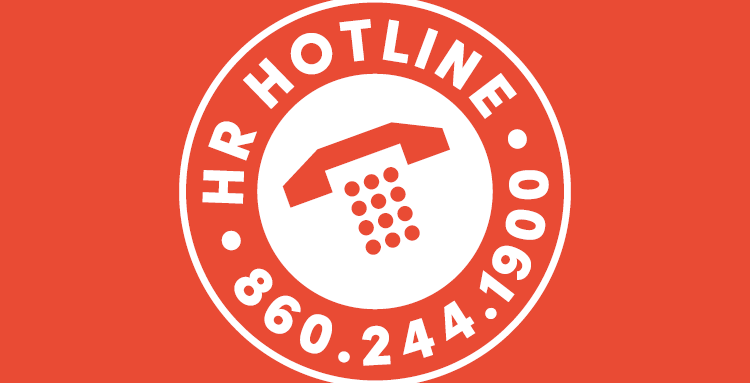HR Hotline: What Qualifies as ‘Reasonable Suspicion’ for Drug Testing?

Q: I’ve heard employers may conduct employee drug testing if they have “reasonable suspicion” that the test is warranted. But what exactly qualifies as “reasonable suspicion?”
A: You’re correct that Connecticut law allows an employer to require an employee to submit to urinalysis drug testing if the employer has reasonable suspicion that the employee is under the influence of drugs or alcohol which adversely affects the worker’s job performance.
Note that this rule applies only to urinalysis testing. In other words, Connecticut’s drug testing statutes do not restrict an employer’s ability to require other types of testing, such as breathalyzers, hair follicle tests, or blood tests.
So what is “reasonable suspicion?”
The term is not defined by statute. However, the Connecticut Department of Labor recommends employers consider a range of factors (see below) that may provide reasonable suspicion that an employee is under the influence.
Ultimately, the determination will be within the employer’s judgment, as no set number of these factors must be present, and an employer may be able to identify other symptoms not included on this list.
Determining Factors
Keep in mind that these factors are only relevant if they adversely affect—or could adversely affect—the employee’s job performance.
The factors are:
- strong odor on breath, hair, hands, or clothes
- glassy, watery, red, or bloodshot eyes
- dilated pupils
- swollen eyelids
- flushed face
- unsteady gait
- slurred speech
- unusual sweating
- disorientation
- inappropriate or aberrant behavior
- unexplained personality changes
- erratic operation of machinery or equipment
Testing, Disciplinary Action
If an employer or supervisor notices these symptoms, and they could affect the employee’s job performance, the employer may require the worker to submit to urinalysis testing, and may discipline the employee based on the results.
That testing must comply with Connecticut’s statutory requirements.
Note that an employee’s involvement in a work-related accident is not enough, on its own, to justify mandated drug or alcohol testing, unless the work is governed by some other agency, such as the Department of Transportation.
An employer is not required to drug test an employee before making disciplinary decisions.
It’s important to note that an employer is not required to drug test an employee before making disciplinary decisions.
For example, if an employer reasonably believes that an employee is under the influence of drugs or alcohol at work—whether that determination is based on the factors listed above, or the employee’s work performance, or some other basis—the employer may discipline that worker without taking the additional step of drug testing.
Connecticut law restricts an employer’s ability to require drug testing because the testing itself can be intrusive.
HR problems or issues? Email or call CBIA’s Diane Mokriski at the HR Hotline (860.244.1900) | @HRHotline. The HR Hotline is a free service for CBIA member companies.
RELATED
EXPLORE BY CATEGORY
Stay Connected with CBIA News Digests
The latest news and information delivered directly to your inbox.


